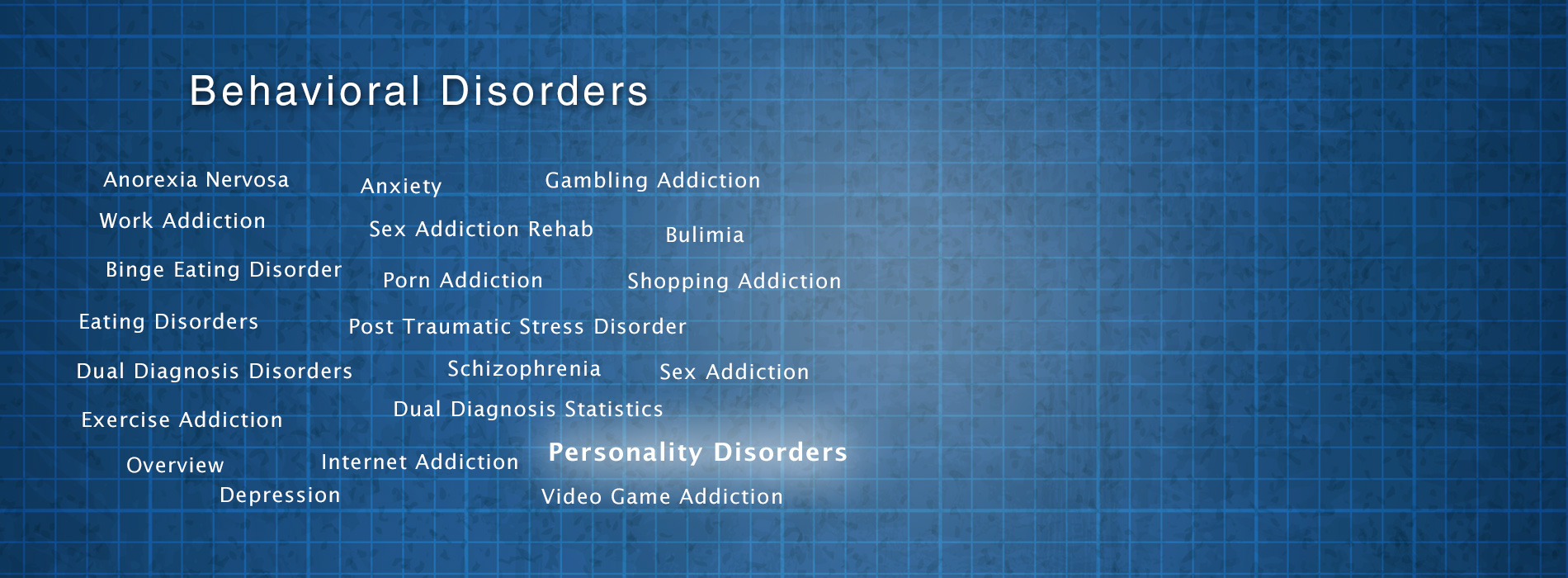Personality Disorders
Personality disorders are a group of disorders that involve maladaptive behaviors and ways of thinking that are ingrained into a person’s personality. These thoughts and behaviors are ingrained and develop early in life, but they can vary in severity. There are four classifications of personality disorders: Cluster A (odd), Cluster B (dramatic), Cluster C (anxious), and not specified.Cluster A consists of disorders that exhibit odd or eccentric behavior, usually with an emphasis on social interaction. This category is separate from disorders that involve delusions of hallucinations, which have separate diagnoses. There are three prominent disorders in this category. Paranoid personality disorder involves paranoia and unwarranted suspicion of others to the extent that it damages relationships with others. Schizoid personality disorder is characterized by a lack of emotional expression and a lack of interest in personal relationships. Schizotypal personality disorder is when a person has extreme social discomfort and anxiety that results from distorted thoughts about themselves and others.
Cluster B disorders involve dramatic and emotional behaviors that generally create toxicity in relationships. In antisocial personality disorder, the person does not have a regard for others’ feelings and may manipulate others to get what they want. Antisocial personality disorder is often incorrectly called psychopathy or sociopathy, but those terms are no longer used to describe the disorder. Borderline personality disorder involves anger, irritability, and severe insecurity. People with borderline personality disorder cycle between adoration and derision of others and may engage in self harm, attempt suicide, or abuse substances. Histrionic personality disorder involves intense attention-seeking behavior and extreme emotions. Narcissistic personality disorder is characterized by inflated self-importance, extreme emphasis on vanity, and lack of empathy for others.
Cluster C personality disorders involve severe anxiety or fear that is ingrained in a person’s personality. Avoidant personality disorder is characterized by extreme social anxiety due to feelings of inadequacy, negative reactions to criticism, and avoidance of social situations. People with avoidant personality disorder experience self-loathing and feel that they are socially inept and undeserving of healthy relationships. People with dependent personality disorder have a psychological need to be cared for by others, often one person in particular. Obsessive-compulsive personality disorder is characterized by extreme perfectionism, desire for control, and rigid adherence of rules to the point of detriment to personal life and relationships. Obsessive-compulsive personality disorder is not to be confused with obsessive-compulsive disorder, in which anxiety drives a person to complete tasks or motions, often repeatedly, out of fear that something terrible will happen.
Other personality disorders include disorders that do not fit into a defined category or personality changes that occur as a result of a medical condition, such as a brain tumor.
The exact cause of personality disorders are not known, though children who have suffered physical and mental abuse are more likely to develop personality disorders. However, most people who develop personality problems after abuse achieve at least partial remission in adulthood.
Treatment for personality disorders involves therapy, usually in a group, family, or residential setting. It can be difficult to get someone with a personality disorder to agree to treatment, as some people do not want to admit they have a problem.

